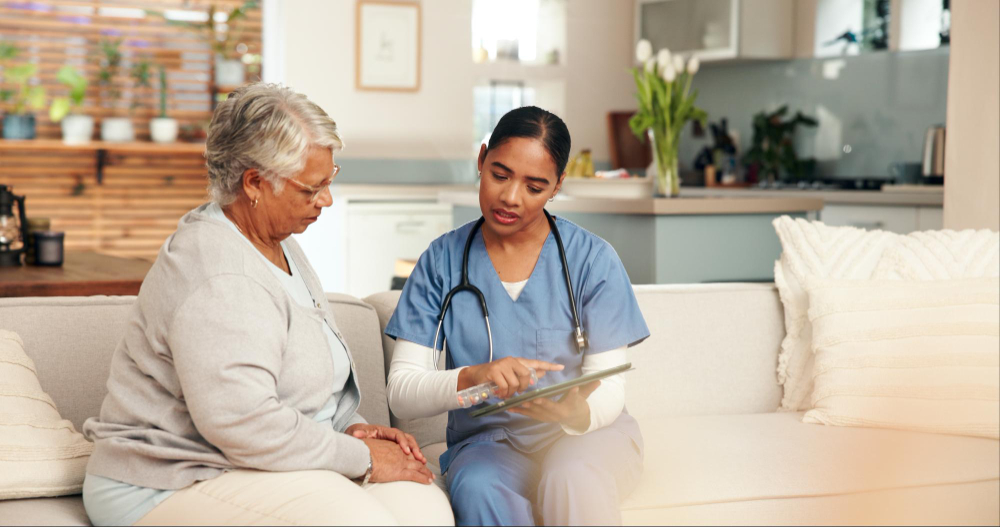
Introduction
Recovery from an illness, surgery, or chronic condition often requires constant medical attention. This is where 24-hour skilled nursing care plays a crucial role. Skilled nursing care provides round-the-clock medical supervision, ensuring that patients receive the best possible care without interruption. Whether in a nursing facility or at home, skilled nursing care offers medical expertise, personal assistance, and emotional support, helping individuals regain strength and independence.
What is 24-Hour Skilled Nursing Care?
24-hour skilled nursing care refers to continuous medical care provided by licensed professionals, including registered nurses (RNs) and licensed practical nurses (LPNs). This type of care is essential for patients recovering from surgery, managing chronic conditions, or requiring rehabilitation after a serious illness. Unlike standard nursing services, skilled nursing care involves medical procedures such as wound care, medication administration, and physical therapy.
Who Needs 24-Hour Skilled Nursing Care?
Many individuals benefit from skilled nursing care, including:
- Seniors with chronic illnesses such as diabetes or heart disease.
- Patients recovering from surgery or a major medical procedure.
- Individuals with severe mobility issues requiring continuous assistance.
- Those with cognitive impairments like Alzheimer’s or dementia.
- Patients needing specialized medical treatments such as IV therapy or dialysis.
Key Benefits of 24-Hour Skilled Nursing Care
1. Continuous Medical Supervision
One of the most significant advantages of 24-hour skilled nursing care is the presence of medical professionals at all times. This ensures that emergencies are handled quickly and that medications and treatments are administered as needed.
2. Personalized Care Plans
Each patient receives a care plan tailored to their specific medical needs. Skilled nursing care providers assess the condition of patients regularly and adjust treatments accordingly, promoting faster and safer recovery.
3. Assistance with Daily Activities
Beyond medical support, skilled nurses help patients with daily tasks such as bathing, dressing, and eating. This level of assistance ensures that patients maintain their dignity and hygiene while recovering.
4. Rehabilitation Support
For those recovering from surgery, stroke, or an injury, skilled nursing care includes physical, occupational, and speech therapy. These services help patients regain their mobility, strength, and communication skills.
5. Medication Management
Proper medication management is crucial for recovery. Skilled nurses ensure that medications are taken at the right time and in the correct doses, reducing the risk of complications or negative interactions.
The Role of Skilled Nursing Care in Recovery
Preventing Complications
Patients recovering from serious conditions are at risk of infections, bedsores, and other complications. Skilled nurses monitor patients closely, preventing these issues before they become severe.
Supporting Mental and Emotional Well-Being
Recovery is not just physical—it’s emotional as well. Skilled nursing care provides companionship, reassurance, and encouragement, reducing feelings of loneliness and anxiety in patients.
Enhancing Family Involvement
Family members often play a crucial role in a patient’s recovery. Skilled nursing facilities encourage family visits and provide guidance on how loved ones can support the recovery process.
Skilled Nursing Care at Home vs. Nursing Facilities
While some patients receive skilled nursing care in a specialized facility, others opt for in-home care. Both options have advantages:
- At-home skilled nursing care: Ideal for patients who prefer a familiar environment. It offers comfort while ensuring professional medical care.
- Nursing facilities: Provide advanced medical equipment and a team-based approach, which is beneficial for those with complex medical needs.
How to Choose the Right Skilled Nursing Care Provider
When selecting a 24-hour skilled nursing care provider, consider:
- Licensing and certification – Ensure the facility or service is properly accredited.
- Experience and reputation – Check reviews and testimonials from other patients.
- Specialized services – Some conditions require specific care, so make sure the provider has expertise in the required area.
- Staff-to-patient ratio – More staff per patient often means better care and attention.
- Family involvement – Choose a provider that encourages and supports family participation in the recovery process.
The Future of Skilled Nursing Care
Advancements in medical technology continue to improve the quality of skilled nursing care. Telemedicine, electronic health records, and AI-driven health monitoring are making it easier to provide high-quality, personalized care to patients, ensuring faster recovery and better health outcomes.
Conclusion
24-hour skilled nursing care is a vital component of recovery for many individuals. It ensures continuous medical attention, proper rehabilitation, and overall well-being. Whether at home or in a specialized facility, skilled nursing care helps patients regain independence, improve their health, and enjoy a better quality of life.
5 Most Asked Questions About 24-Hour Skilled Nursing Care
1. What services are included in 24-hour skilled nursing care? It includes medical monitoring, wound care, therapy, medication management, and assistance with daily activities.
2. How is skilled nursing care different from regular nursing care? Skilled nursing care involves medical treatments provided by licensed professionals, while regular nursing care focuses on general support and assistance.
3. Can skilled nursing care be provided at home? Yes, skilled nursing care can be provided at home or in a facility, depending on the patient’s needs.
4. Who pays for 24-hour skilled nursing care? It may be covered by insurance, Medicare, Medicaid, or private payment, depending on the provider and care plan.
5. How do I choose the best skilled nursing care provider? Look for licensing, experience, specialized services, staff ratios, and positive patient reviews.